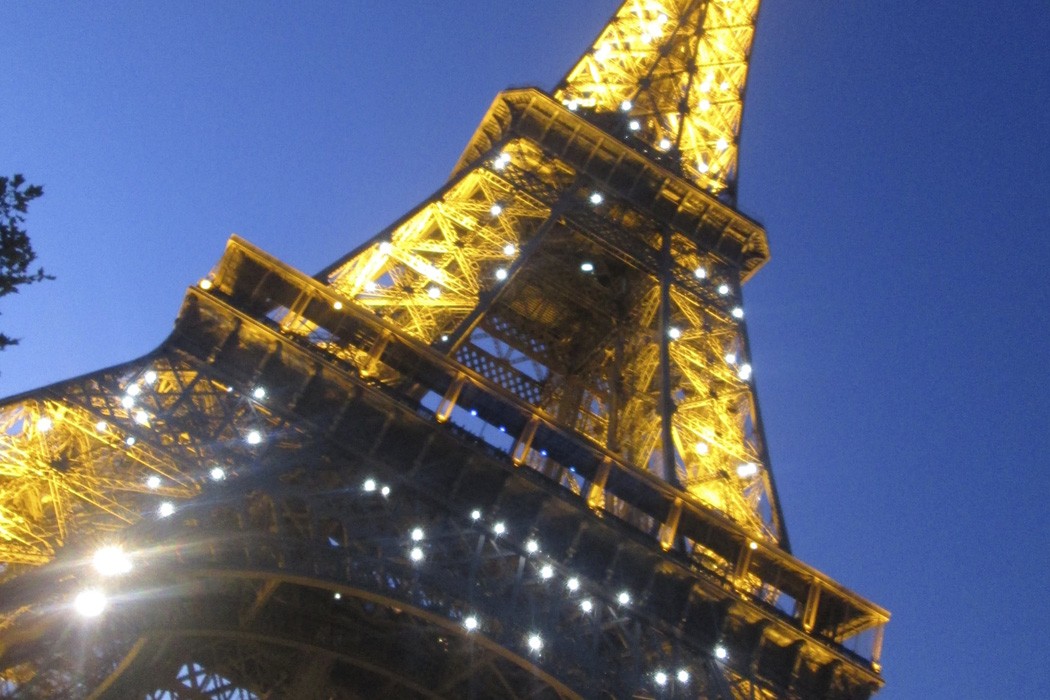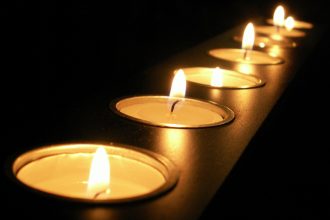As I write, I’m sitting in my living room watching football on a Sunday evening. I just finished eating a meal made with organic tomatoes and peppers we grew in our garden this summer, and now I’m enjoying a craft beer, made not far from my home.
Tonight’s Sunday Night Football game between the Arizona Cardinals and the Seattle Seahawks begins with a moment of silence to remember the victims of the Paris terrorist attack on Friday night, followed by a slightly altered version of “The Star Spangled Banner.” When the singer reaches the line “gave proof through the night that our flag was still there,” he changes “our” to “your” in a show of solidarity with France. As the song finishes, war helicopters fly over the stadium.
As Arizona quarterback Carson Palmer narrowly avoids a sack, my mind wanders to those around the world who might have a hard time imagining my comfortable existence tonight. Shocked by the violence of Friday night, Parisians are suddenly unsure of whether they can safely walk their streets, go out for dinner, or enjoy live music. Lebanese citizens in Beirut are longing for peace after a suicide attack on Thursday killed over 40 people, while also struggling with their tragedy being overlooked by the world community. Syrians are exhausted by the brutal civil war in their country, abandoning their homes in search of refuge around the world—only to be treated as enemies upon arrival. In contrast to the excitement of American football crowds, Pakistanis hear the sound of aircraft overhead with dread, knowing that an explosion might not be far behind. Kenyans are trying to heal from terrorist attacks in their colleges and malls. Iraqis are caught in a nightmare scenario of spiraling violence, unstable infrastructure, and the deaths of at least 146,000 civilians since 2003. That’s to name only a few, but far too many.
Suddenly my seemingly normal evening seems anything but. Against a backdrop of cheering fans and jubilant announcers, it’s all I can do not to break down in mourning for the state of the world.
To avoid the trap of being mindlessly thankful for the blessings of the place where I live, I remember again how my citizenship makes me culpable in the American foreign policy that has made similar blessings unattainable elsewhere. Any serious study of American history highlights repeated violent incursions, foreign and domestic, that have had disastrous consequences for communities around the world.
For example, our 2003 invasion of Iraq contributed significantly to the destabilization of the region, transforming Iraqi life and planting seeds of Islamic extremism. “The Americans came,” an imprisoned ISIS fighter said in a recent interview with The Nation. “They took away Saddam, but they also took away our security. I didn’t like Saddam, we were starving then, but at least we didn’t have war. When you came here, the civil war started.” It isn’t difficult to see how our pre-emptive war has folded back into more violence around the world.
Unfortunately, this cycle of violence shows no sign of stopping. France has already started bombing the Syrian city of Raqqa, an ISIS stronghold whose residents have been terrorized by the extremist group and whose neighborhoods have been bombed repeatedly over the past several months by Syrian, American, and Russian warplanes. And ISIS will, no doubt, continue to wreak their own havoc in as many places as they can, terrorizing Muslims, Christians and others.
The old law of an eye for an eye leaves everybody blind.
There has to be another way; the cycle of violence needs to be broken somewhere by someone. “The old law of an eye for an eye leaves everybody blind,” wrote Martin Luther King, Jr., in Stride Toward Freedom, echoing Gandhi. Following Jesus’ dictum, I would do well to examine the log in my own eye before proceeding.
The roots of our problem of violence run deep in our national mythology. Our collective historical amnesia, discomfort with our involvement in questionable tactics, and unwillingness to wrestle with alternative options leaves us unable to make meaningful changes personally or corporately. From where I’m sitting tonight, we’re quite comfortable with the way things are.
As I watch the football game progress, I participate in a liturgy of gratitude for our military prowess. Matter-of-fact pronouncements from announcers, teams donning camouflage apparel, patriotic advertisements: I am repeatedly invited to give thanks for those who fight to give us the freedoms we enjoy. This basic mythology is predicated on the idea that we have to be fighting someone somewhere in order to maintain our way of life, because new threats lie around every corner. On the assumption that flourishing for all is simply not possible, we play out a zero sum game in which only a few can receive the “privileges” of human dignity, a safe place to live, meaningful and sustaining work to do, and space for building community.
This myth of redemptive violence doesn’t hold up to serious scrutiny. First, it’s a difficult argument to make in terms of strategies and tactics. Since World War II, the U.S. has engaged in military activities all over the world with very few successes and many unintended consequences. Many of the threats over the last century have been self-inflicted as we’ve created new cycles of violence. Along the way, we have sacrificed far too many lives at this altar, including those in our own military, both during and after conflicts. We’ve come to assume that the toll paid by our neighbors in places like Vietnam, Argentina, and Iraq as they try to make a home amid the chaos we created is simply the price for our freedom.
This mythology is shaping our story in profoundly distorted ways. Does the military really give us our freedom? The founding documents of our nation suggest that our unalienable rights were endowed by our creator, which is a much different story. In the most spacious reading of the Declaration of Independence, everyone in the world is created equal and should be able to pursue a vision of the good life. In my tradition, we understand that all good gifts come from God. My freedom isn’t secured by inflicting pain on others; my freedom is secured by Christ who took the violence of the world upon himself in order to break the cycle and demonstrate another way for living life together on this earth—and I am called to emulate his model of self-sacrifice. Reconsidering and reinterpreting our foundational stories opens up space to imagine a different kind of action. Suddenly, violence isn’t the guarantor of peace for some; instead, peace for all is possible.
Many will suggest that this is all idealistic bullshit. But what has all of the violence we’ve inflicted on the world done for us but create more violence? What is the burden of proof on those who would claim the effectiveness of violence? Where does the violence end? In the middle of the spiral, it’s difficult to see a way out. But all over the world, peacemakers who long for universal flourishing have been imagining new ways forward without violence. We would do well to look for these folks and support them in whatever ways we can. It is difficult work and there are many heart-wrenching setbacks, but it is the only hope for a lasting peace for all.
Because life is not a football game in which one side has to lose so that the other side can win, and it is not, as Sunday Night Football might have me believe, an inevitable, never ending war.





